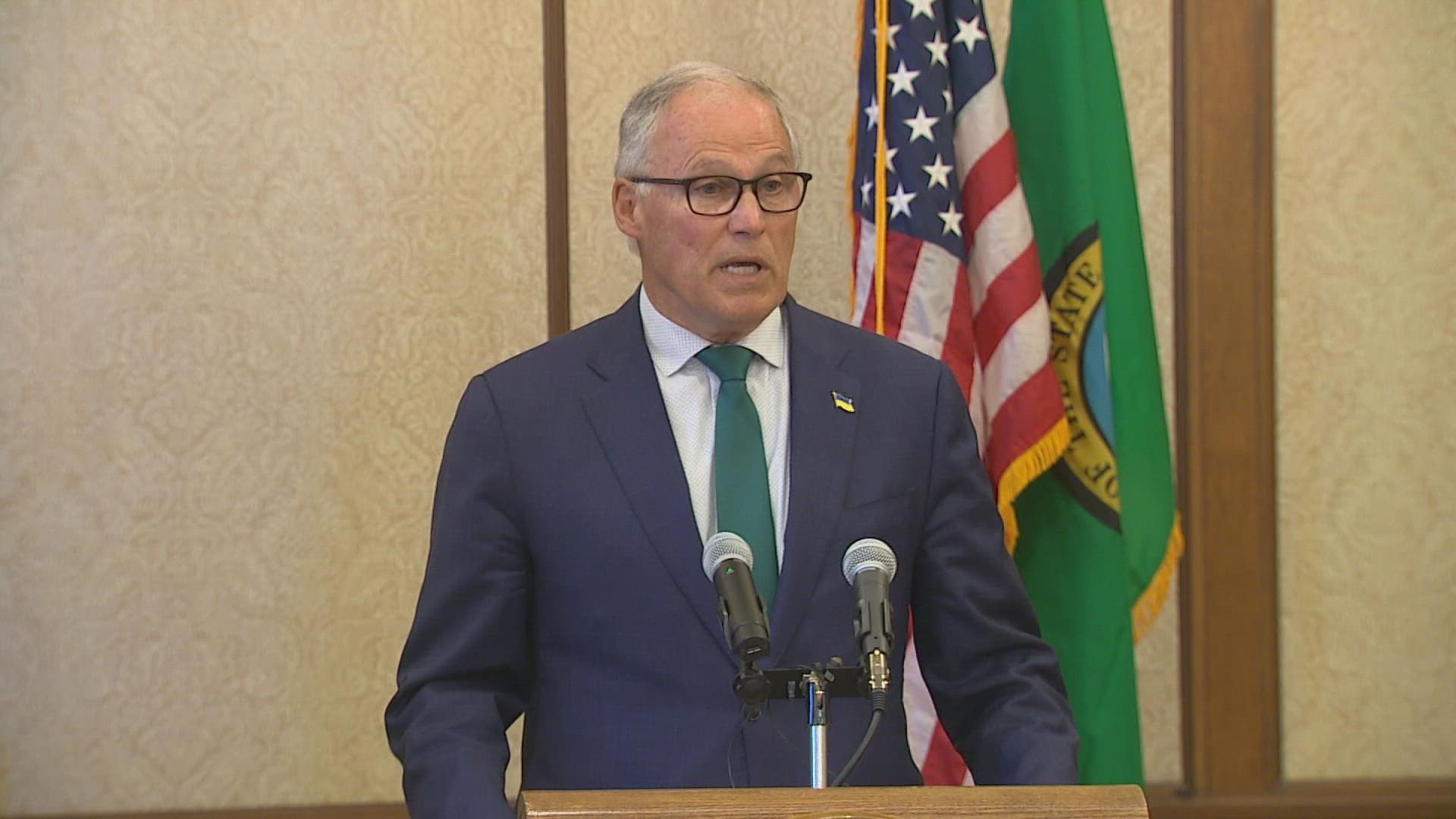OLYMPIA, Wash. — Every state legislator, the governor and all other statewide elected officials would see a boost in salary over the next two years, under proposals voted on by the Washington Citizens’ Commission on Salaries for Elected Officials.
Under the proposal, the governor, lieutenant governor, treasurer, superintendent of public instruction, insurance commissioner, commissioner of public lands and all state legislators would see a 4% bump in salary starting July 1, 2023, with another 3% raise in July 2024.
Gov. Jay Inslee’s salary would increase from $190,632 a year to $198,257 a year in 2023.
Legislators would see an increase from $57,876 to $60,191 a year, starting next July.
The attorney general would see a 6.5% increase, the state’s Supreme Court chief justice’s salary would increase by 7% next year, and the state auditor’s pay would see the highest increase: more than 8% in 2023.
State Auditor Pat McCarthy said in an email that she appreciates that the Salary Commission respects their work.
"The Legislature has recently given the auditor’s office new duties, such as auditing the investigations into law enforcement’s use of deadly force and checking whether local governments are complying with clean energy requirements," McCarthy wrote. "I believe the work of our office can proudly stand shoulder-to-shoulder with most of our statewide offices in terms of impact and responsibility."
“It’s not a done deal,” said Teri Wright, the commission’s executive director.
She said the 17-person commission has only proposed the salaries that are now up for public comment.
“We really want to hear what the public has to say about these salaries,” said Wright.
The commission is made up of citizens selected from voter registration rolls, with some representing certain occupations, like lawyers or higher education positions. It meets every two years and has full authority to set salaries and raises for elected officials.
Neither the governor nor legislators have the power to change the salaries selected by the commissioners.
The commission is accepting public comment until Feb. 8. Provide your input here.

